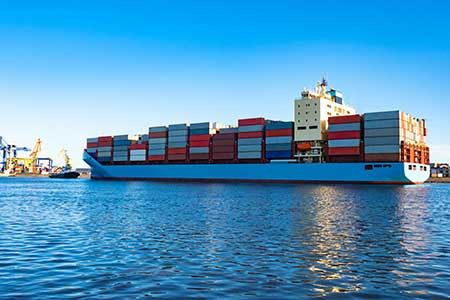Moving internationally is an intricate process that requires a lot of planning -- transporting your life overseas is no small task. When it comes to shipping your vehicle to your new home country, it's important to ensure that you hire a trustworthy and qualified automobile transport company, and that you educate yourself on the complicated process.

Before you choose an international car shipping company to transport your automobile, be sure that the company you're considering is familiar with the following laws and regulations of international car shipping.
Auto transport rules and regulations
There are many rules and regulations that you might not have known about overseas car shipping. You need to check your vehicle's condition before it can be loaded into the shipping container or rolled onto the ship. Also, your international auto transport should be aware of all of these restrictions, and capable of explaining them to you in detail. (These rules and regulations may vary depending on your destination country)
You may be required to prepare your car before shipping it to another country:
- Drain the car of most or all gasoline or other hazardous or flammable materials
- Disconnect or temporarily remove the car battery.
- Empty your vehicle and trunk of all personal possessions or other loose items
Depending on your destination country, the laws restricting the age and type of vehicles permitted for import will also vary- some countries prohibit the importation of automobiles over a certain age or vehicles that do not pass safety or emissions inspections. Also, keep in mind about the,
- Weight of the vehicle: You should not keep extra load inside your vehicle while shipping it. It is against FMCSA laws for car shipping companies to transport personal items within a vehicle. In addition, the company's insurance does not cover the damage. Also, car shipping companies do not insure you for the belongings you place inside your car.
Note: The weight of your automobile is calculated based on the weight of the make and model of your vehicle.
- Height of the vehicle: Some countries also puts a restriction on the height of the vehicle. The standard carriers can carry vehicles up to 7 feet high.
Additionally, factors such as the vehicle's value or engine size can determine the rates of the tariffs, taxes, or duties you will have to pay.
Documents required to ship a car overseas
Before you ship your car overseas, you need to provide some specific documents to the overseas car shipping company in order to verify that the vehicle belongs to you and that you have insurance.
Some of the documents required to ship your car overseas are:
- Ownership information:
- If you own a vehicle, you need to submit the original Certificate of Title or a certified copy of the Certificate of Title, plus two complete copies that accompany your car to the port of origin.
- If you lease your car or if a lien has been recorded, you must also provide a separate letter from the lien holder authorizing the exportation, including the owner/ lien holder's name, the Vehicle Identification Number (VIN), the owner/lien holder's telephone number, and the lien holder's signature and date.
- If you purchased a new car that is being shipped abroad, you will need a Bill of Sale and an Original Certificate of Origin from the dealership where you bought the vehicle.
- Personal information: You'll need to provide your identification -- state driver's license ID or a passport of the country where you are a legal resident.
- Vehicle information: year, manufacturer, model, VIN number and the price
- Copy of your Insurance: You must provide a copy of your car insurance as proof; this will however not be accepted if the insurance is expired
These documents are important when you need to ship a car both for your protection and for that of your car shipper.
Customs regulations for international car shipping
Customs is a regulatory agency in a country responsible for controlling the flow of goods in and out of the country, ensuring they are legitimate and safe, and collecting the appropriate duties and fees.
- Every country's customs department has its own specific laws regarding the process of importation, the condition of the car and the required paperwork. You should discuss the customs regulations in detail with your auto transport company to ensure that they are familiar and ideally, that they have imported vehicles there previously.
- Be sure to ask your auto transport company if they provide customs clearance services or if you will have to hire a separate customs broker to handle the shipping process. If your car shipping company offer this service, be sure that they will provide you with an agent to receive your vehicle when it arrives at customs in your destination country.
- While it is wise to enlist the aid of professionals, you want to do your own research as well. Before you ship your vehicle, check with the consulate of your new country's government to determine any levies or restrictions that could affect your vehicle shipment.
Find out more about international auto transport, different shipping methods, and insurance options by following our guide overseas car shipping. Also, be sure to ask any potential car shipper you are considering for hire these important questions to avoid common problems that occur during auto transport and download our helpful checklist to prepare your vehicle for shipping.